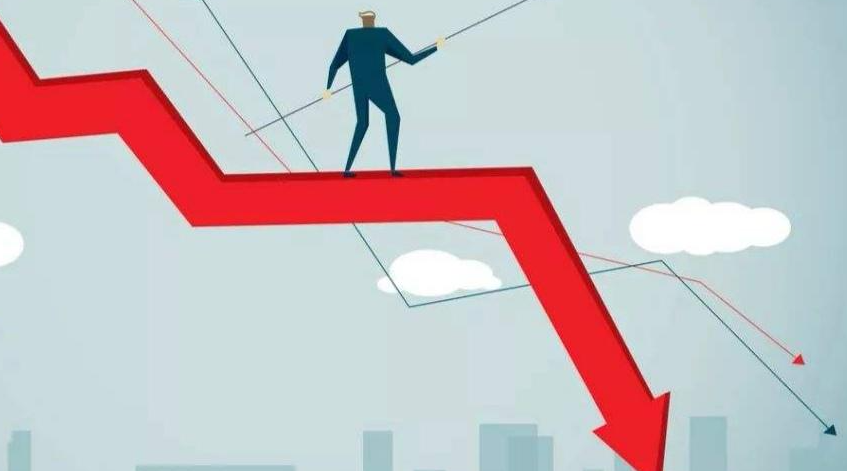Will Tesla Drop Over 50%?
Advertisements
In the dynamic landscape of the electric vehicle industry, a significant tide has turned against what was once considered the pinnacle of innovation: Tesla. For years, the automotive company, led by Elon Musk, epitomized a revolution that transformed traditional concepts of transport. Yet, recent sentiments from once steadfast supporters reveal a growing concern for Tesla’s future, especially articulated by Ross Gerber, a prominent early investor and CEO of Gerber Kawasaki Wealth & Investment Management.
Gerber, who once hailed as a devoted “Tesla believer,” is now publicly expressing fears about a steep drop in the company's stock value, projecting a potential decline exceeding 50% by 2025. His concerns become even more pertinent when considering the recent trajectory of Tesla’s stock, which reflected a near 11% drop since the start of the year.
What caused this disillusionment among a core group of supporters? Gerber pinpointed four primary reasons for his cautious outlook during a recent interview with Business Insider. Among these were the stagnation in autonomous driving technology, Musk’s divided attention among diverse ventures, diminished sales growth, and the looming risk of overstated valuations.
Starting with autonomous driving technology, Gerber fervently criticized Tesla's reliance on camera-based systems, as opposed to the more sophisticated LIDAR technology favored by competitors like Waymo, a subsidiary of Alphabet. In Gerber's view, the absence of LIDAR is a “significant flaw,” marking Tesla as a notable underdog in the race towards full autonomy. He specified, “We are clearly behind in the realm of autonomous rides and self-driving technologies,” implying that companies that adopt an integrated approach like Waymo may have a competitive advantage.

Musk’s ambitions to launch a fully operational self-driving taxi network this year further pressed Gerber's concerns. He described Musk’s plans as overly optimistic, raising doubts about their feasibility without a crucial upgrade in hardware. Gerber warns, “They will face bottlenecks unless they adjust their technological base.”
Moving beyond technology, Gerber also raised issues about Musk's widely recognized tendency to juggle multiple demanding roles – leading Tesla, SpaceX, and now a foray into artificial intelligence with xAI. He suggests that this diffusion of focus has begun to detrimentally impact Tesla, as Musk's current energies seem heavily invested in AI, potentially at the expense of Tesla’s operations. “He’s dedicating 100% of his focus to AI, which ultimately does more harm to Tesla than to xAI or any of his other businesses,” remarked Gerber, insisting that a recommitted focus on Tesla's self-driving developments would restore his optimism about the automaker’s prospects.
Yet, beyond leadership fragmentation lies the kind of market reality that is increasingly hard to ignore: slowing sales growth. Despite the burgeoning excitement surrounding Tesla’s prospects in autonomous vehicles and robotics, the actual vehicle sales have begun to wane. For the first time in 2024, the company experienced an annual decline in electric vehicle sales, which alarmed investors, particularly in international markets where competition is growing fiercer by the day.
Moreover, Gerber emphasized the reputational damage that Musk’s close ties with political figures, notably the presidency, have inflicted on the Tesla brand. This relationship has fueled resentment among certain customer bases, creating a damaging association that encompasses anger directed not towards Tesla’s products, but rather towards Musk himself. “I’ve never seen people so irritated with Tesla, though it’s not really about the company, but rather about Musk – that’s the only outlet people find to express their frustration,” he stated.
Supporting this claim, data from the German Automotive Industry Association indicated a staggering 60% year-over-year drop in new Tesla registrations in Germany by January, along with further declines of 63% in France and 38% in Norway. Such alarming figures underscore the mounting challenges Tesla faces not just internally but also externally within an increasingly competitive landscape.
Lastly, Gerber cautioned against Tesla's historically high valuation. Tesla's market capitalization has long surpassed that of traditional automakers and even leading tech firms. However, as its vehicle sales approach a downward trend, that valuation premium could deflate significantly. YCharts illustrated that Tesla’s valuation stands at an impressive $1.1 trillion, nearly five times that of Toyota, while its profits were only a fraction—20%—of what Toyota generated the previous year. The striking 125-fold price-to-earnings ratio is three times that of Nvidia, a substantial figure indicative of inflated perceptions of Tesla's market strength.
With a valued holding of $100 million in Tesla stock, Gerber cautioned about the inherent vulnerabilities if things don’t progress as anticipated: “The fragility of Tesla rests on its current realities. If this year does not unfold well, the stock could realistically see a 50% decrease.”
Interestingly, Gerber’s views seem to resonate with larger institutional sentiments on Wall Street. Analysts at JPMorgan expressed skepticism regarding Tesla’s recent financial disclosures, despite some initial investor optimism. The firm has maintained a cautious target price of $135 for Tesla's stock, signifying a potential decline of about 60% from current levels, reflecting broader sentiments of caution and caution regarding the company’s outlook.
In summation, the juxtaposition of soaring expectations against the backdrop of harsh realities presents a compelling narrative for Tesla. As investor confidence teeters amid technological stagnation, leadership distractions, market competition, and high valuations, the path ahead may not be as linear or promising as once envisioned. Understanding this evolution of belief among Tesla's once zealous supporters provides a profound insight not only into the company’s immediate future but also the larger, often tumultuous narrative that defines the electric vehicle industry as a whole.
Post Comment